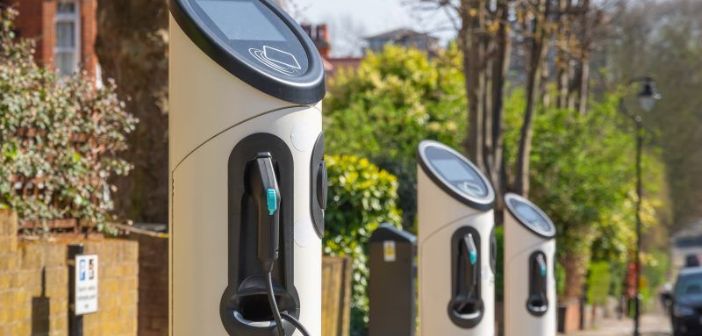UK Power Networks’ (UKPN) Envision project is simulating how power flows through its networks in the South East of England, with the aim of delivering the energy capacity equivalent to 1,371 new rapid electric car chargers by 2028.
The £2m project harnesses machine-learning to create a “Matrix” simulation of the electricity network across London, the South and South East of England. This data-led approach is designed to provide better ‘visibility’ of everything that is happening across hundreds of thousands of miles of network.
The company added the tool will enable it to run the network more efficiently and safely, as well as allowing more low carbon technologies such as EV chargers and heat pumps to connect.
UKPN forecasts Envision could release almost 70MW of electricity capacity by 2028, creating more space for EV chargers. This means engineers won’t need to physically upgrade the network to release capacity, leading to significant cost and time savings. Envision predicts it can save up to £4m in total over the next five years.
Ian Cameron, head of customer services and innovation at UK Power Networks, said: “Our customers rightly expect us to do everything we can to make the switch to electric cars and low carbon heating as affordable as possible. Through Envision, we’re thinking outside the box and re-imagining traditional ways of working, to make it happen.”
There are currently more than 150,000 electric cars and 20,000 heat pumps in the areas served by UKPN, but its analysis forecasts over 2.6million electric vehicles and 712,000 heat pumps by 2030. These need ‘space’ on the electricity network, so quickly and efficiently unlocking more capacity is a vital part of the network operator’s strategy.
Envision is building new predictive models which combine UKPN’s data with external and real-time data from monitoring devices connected to substations. The machine learning algorithm will create a simulation of the electrical ‘load’ in specific areas and expand it across the entire network. Engineers will compare the simulation to real life physical monitors; feeding the software more and better data over time so the algorithm gets more accurate.
Simone Torino, head of product and business development at CKDelta, which is collaborating on the project, added: “In a world where the uptake of new distributed energy resources and the increasing electrification of transport are impacting electrical demand and distribution network constraints like never before, having this type of modelling and predictive analytics capabilities is a game changer for the utilities sector and has potential to reshape how we approach demand and supply in other sectors such as transport.”
Envision is expected to run until August 2022.





